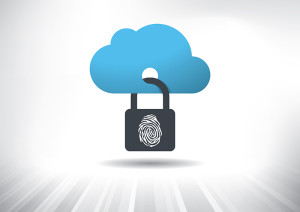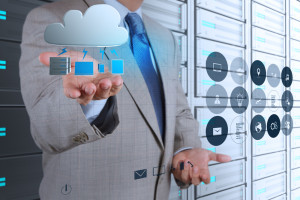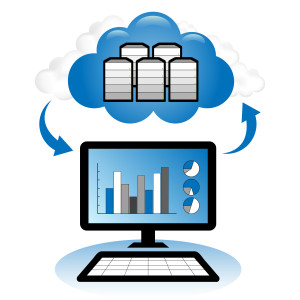 One of the biggest concerns when moving to the cloud is security. It is no small thing to entrust valuable, often vital, data to others, but the advantages of cloud services are undeniable. Luckily, there are a few things to look into before signing a service agreement that can help secure data in the cloud.
One of the biggest concerns when moving to the cloud is security. It is no small thing to entrust valuable, often vital, data to others, but the advantages of cloud services are undeniable. Luckily, there are a few things to look into before signing a service agreement that can help secure data in the cloud.
Is there an audit trail?
In addition to tracking down the cause of system issues, the presence of an audit trail can make users behave more carefully. System users pay more attention to what they are doing when they know their actions can be audited.
What are each party’s responsibilities?
Data security is not solely the job of the provider or of the client. It is a joint effort between the two. Clearly defining roles and responsibilities can go a long way and ensure that everything that needs to be done is being done.
Is everything encrypted?
Most providers encrypt traffic between their organization and the client. That may not be enough. If the provider is not encrypting data internally, a would-be attacker can gain access to everything with one breach. Should a security breach occur, internal encryption significantly reduces the potential damage.
Can you see the logs?
This is not something many clients think about in advance, but not all providers give clients the same access to logging data. It’s important to determine what information a provider is willing to share, and under what circumstances, before signing the contract.
What happens when it’s time to leave?
No business relationship lasts forever. Before entering into a service agreement with a provider, it’s beneficial to review their exit procedures. What assistance, if any, do they provide in transitioning to a new provider? How do they deal with the destruction of your data? And does a third party verify that procedures are followed?
Where is your data?
“In the cloud” is not a sufficient answer to this question. This is especially true for many of the more heavily regulated industries. It’s important for a client to know where data will physically reside and to be familiar with applicable data security laws for the location of data and business headquarters.
Is the provider ISO 27001:2013 certified?
ISO 27001:2013 is an internationally recognized information security standard. The right provider should not only have obtained this certification, but should have their business systems and operational platforms within the certification’s scope.
It can be a frightening proposition to hand the keys to your company’s information and computing to someone else, but looking into the above issues can help mitigate those fears and find the right provider for the job.
 Cloud computing has been around for a while, and in use by a variety of businesses. Why? There are many reasons to consider the cloud or hybrid cloud approach. Here are the top nine benefits to cloud computing, no matter what your business.
Cloud computing has been around for a while, and in use by a variety of businesses. Why? There are many reasons to consider the cloud or hybrid cloud approach. Here are the top nine benefits to cloud computing, no matter what your business. The deployment of mobile technology is swiftly becoming a crucial aspect for business success. The global marketplace demands organizational flexibility through mobile solutions, and indeed, employees now have access to business systems on a wide variety of personal devices. And, because of that mobility, video conferencing has emerged as an important factor in sustaining unified communication and business collaboration.
The deployment of mobile technology is swiftly becoming a crucial aspect for business success. The global marketplace demands organizational flexibility through mobile solutions, and indeed, employees now have access to business systems on a wide variety of personal devices. And, because of that mobility, video conferencing has emerged as an important factor in sustaining unified communication and business collaboration. The advantages of cloud computing are becoming well-known as more and more companies choose cloud technology as a cost-effective business solution. It enables pervasive, convenient, on-demand access to a variety of computing resources including applications, networks, servers, and storage needs. All with very little effort and maintenance expense. Moreover, the flexible scalability of cloud-based services supports the feasibility of usage for large corporations, as well as SMBs.
The advantages of cloud computing are becoming well-known as more and more companies choose cloud technology as a cost-effective business solution. It enables pervasive, convenient, on-demand access to a variety of computing resources including applications, networks, servers, and storage needs. All with very little effort and maintenance expense. Moreover, the flexible scalability of cloud-based services supports the feasibility of usage for large corporations, as well as SMBs.